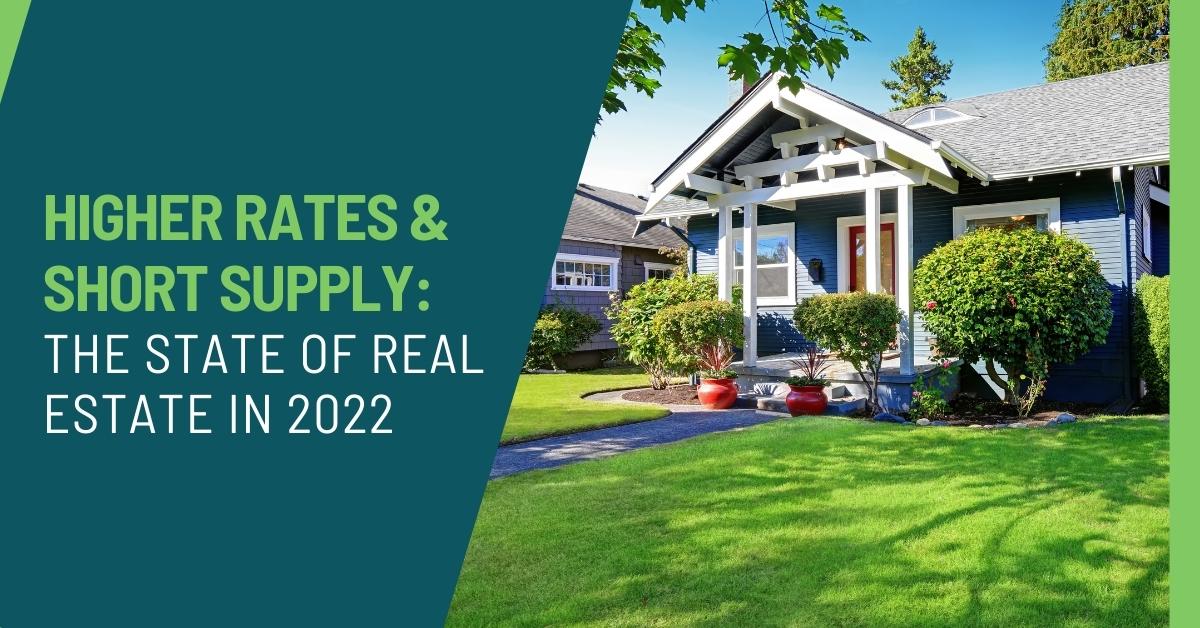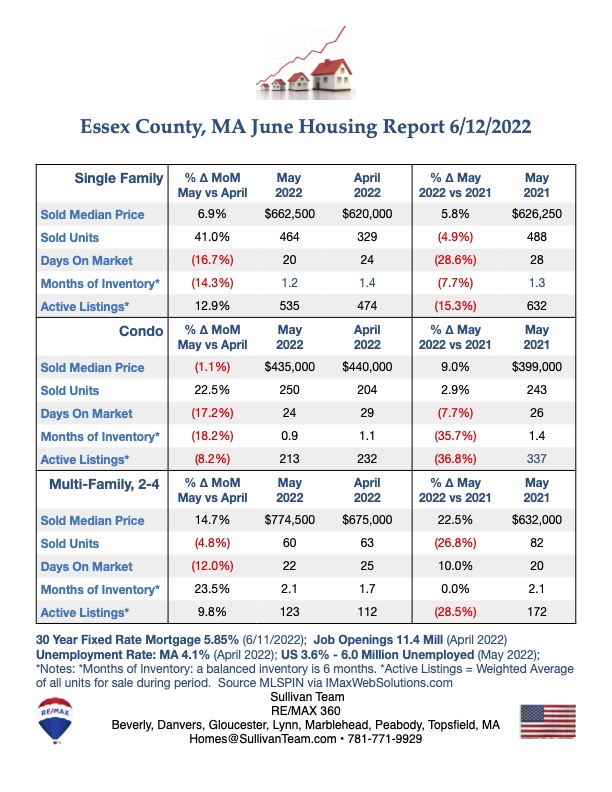
5 Ways to Write a Winning Offer in Today’s Real Estate Market
Our nation is in the midst of a serious housing crunch. Last year, a lack of inventory and soaring prices left many would-be homebuyers feeling pinched. But now, with interest rates climbing, many of them are also feeling desperate to lock in a mortgage—which has only added fuel to the fire.1
Fortunately, if you’re a buyer struggling to find a home, we have some good news. While it’s true that higher mortgage rates can decrease your purchasing budget, there are additional ways to compete in a hot market.
Yes, a high offer price gets attention. But most sellers consider a variety of factors when evaluating an offer. With that in mind, here are five tactics you can utilize to sweeten your proposal and outshine your competition.
We can help you weigh the risks and benefits of each tactic and craft a compelling offer designed to get you your dream home—without giving away the farm.
1. Demonstrate Solid Financing
The reality is, no one gets paid if a home sale falls through. That’s why sellers (and their listing agents) favor offers with a high probability of closing.
Sellers particularly love all-cash offers because there’s no chance of financing issues cropping up at the last moment. But don’t despair if you can’t pay cash for your home. According to the National Association of Realtors, only about 1 in 4 home purchases are all-cash deals, which means the vast majority are financed with a mortgage.2
If sellers are assured that financing will come through, buying with a mortgage doesn’t have to be a big disadvantage. The most important step you can take as a buyer is to get preapproved before you start looking for homes. A preapproval letter shows sellers that you are serious about buying and that you will be able to make good on your offer.
It’s also important to consider the reputation of your lender. While sellers may not know or care about a lender’s reputation, their agents often do. Some lenders are much easier to work with than others, especially if you are pursuing certain types of mortgages like FHA or VA loans.3 If so, you’ll want a lender who specializes in these types of mortgages. If you’re unsure who to choose, we are happy to refer you to reputable lenders known for their ease of doing business.
2. Put Down a Sizeable Deposit
Buyers can show sellers that they’re serious about their offer and have “skin in the game” by putting down a large earnest money deposit.
Earnest money is a deposit held in escrow by a title company or the seller’s broker or lawyer. If the purchase goes through, it is applied to the down payment and closing costs—if the sale falls through, the buyer may lose some or all of that deposit.
While an earnest money deposit is typically around 1-2% of the sale price, offering a higher deposit can help demonstrate to the buyer that you are serious about the property.4 However, this strategy can also be risky. We can help you determine an appropriate deposit to offer based on your specific circumstances.
3. Ask for Few (or No) Contingencies
Most real estate offers include contingencies, which are clauses that allow one or both parties to back out of the agreement if certain conditions are not met. These contingencies appear in the purchase agreement and must be accepted by both the buyer and seller to be legally binding.5
Common contingencies include:
- Financing: A financing contingency gives the buyer a window of time in which to secure a mortgage. If they are unable to do so, they can withdraw from the purchase and the seller can move on to other buyers.
- Inspection: An inspection contingency gives the buyer the opportunity to have the home professionally inspected for issues with the structure, wiring, plumbing, etc. Typically, the seller may choose whether or not to remediate those issues; if they do not, the buyer may withdraw from the contract.
- Appraisal: Most lenders will not offer a mortgage on a home that costs more than it's worth. An appraisal contingency gives the buyer an opportunity to get the home professionally assessed to ensure that its value is at or above the sales price. If an appraisal comes in low, the seller may be asked to renegotiate the contract.
- Sale of a prior home: Some buyers cannot afford to purchase a new home until they sell their previous one. If the buyer is unable to sell their current home within a specified window of time, this contingency enables them to withdraw from the contract without penalty.
Since contingencies reduce the likelihood that a sale will go through, they generally make an offer less desirable to the seller. The more contingencies that are included, the weaker the offer becomes. Therefore, buyers in a competitive market often volunteer to waive certain contingencies.
However, it’s very important to make this decision carefully and recognize the risks of doing so. For example, a buyer who chooses to waive a home inspection contingency may find out too late that the home requires extensive renovations, and a buyer who waives the appraisal may risk their mortgage falling through. If you back out of a home purchase without the protection of a contingency, you could lose your earnest money deposit.6 We can help you assess the risks and benefits involved.
4. Offer a Flexible Closing Date and/or Leaseback Option
When it comes to selling a house, money isn’t everything. People sell their homes for a wide variety of reasons, and flexible terms that work with their personal situations can sometimes make all the difference. For example, if a seller is in the process of planning a significant move, they may prefer a longer closing timeline that gives them time to find housing in their new location.
Similarly, short-term leaseback options, in which the sale is completed but the seller retains the right to rent the home for a specified period of time, can be compelling.7 These arrangements enable the seller to use the money from the sale of their home to purchase their next house. A leaseback agreement also makes it possible for them to avoid moving twice when their next home is not yet ready to occupy.
Flexible closing dates and leaseback options can provide a powerful advantage for first-time homebuyers. If you have a month-to-month or easily transferable lease, for example, you may be able to offer a more flexible timeline than a buyer who is simultaneously selling their existing home.
Of course, the value of these terms depends on the seller’s situation. We can reach out to the listing agent to find out the seller’s preferred terms, and then collaborate with you to write a compelling offer that works for both parties.
5. Work With a Skilled Buyer’s Agent
In this ultra-competitive real estate market, one of the greatest advantages you can give yourself is to work with a skilled and trustworthy real estate professional. We will make sure you fully understand the process and help you submit an appealing offer without taking on too much risk.
Plus, we know how to write offers that are designed to win over both the seller and their listing agent. The truth is, listing agents play a huge role in helping sellers evaluate offers, and they want to work with skilled buyer’s agents who are professional, communicative, and courteous.
Once your offer is accepted, we’ll also handle any further negotiations and coordinate all the paperwork and other details involved in your home purchase. The best part is, you’ll have a knowledgeable, licensed advocate on your side who is watching out for your best interests every step of the way.
Helping You Get to the Right Offer
In many cases, a competitive offer doesn’t need to be all-cash, contingency-free, or significantly above asking price. But if you’re serious about buying a home in today’s market, it’s important to consider what you can do to sweeten the deal.
If you’re a buyer, we can help you compete in today’s market without getting steamrolled. And if you’re a seller, we can help you evaluate offers by taking all the relevant factors into account. Contact us today to schedule a free consultation.
Sources:
- National Association of Realtors -
https://www.nar.realtor/newsroom/pending-home-sales-dwindle-4-1-in-february - National Association of Realtors -
https://www.nar.realtor/newsroom/existing-home-sales-fade-7-2-in-february - Forbes -
https://www.forbes.com/advisor/mortgages/housing-crisis-tips/ - Realtor.com -
https://www.realtor.com/advice/finance/earnest-money-deposit-mistakes-buyers-make/ - Bankrate -
https://www.bankrate.com/real-estate/contingency-clause/ - Home Buying Institute -
http://www.homebuyinginstitute.com/mortgage/risks-of-waiving-a-contingency/ - Realtor.com -
https://www.realtor.com/advice/sell/what-is-a-rent-back-agreement









